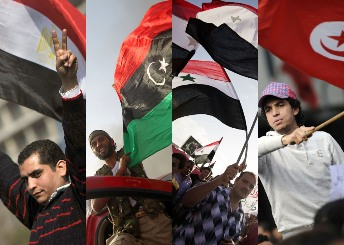
Practical information
Given the events taking place in the Arab world, how have the USA and France reacted to these upheavels? What challenges are Washington and Paris facing in the MENA region? And how are they reacting and adjusting their strategies to a "new" Arab world? And how do these interact with other key actors in the region?
Seminar organised by Ifri, in partnership with New York University Paris.
Participants:
- Denis Bauchard, Ifri Special Advisor for the Middle East
- Christian Koch, Director, Gulf Research Center, Geneva
- Daniel Levy, Director of the Middle East and North Africa programme, European Council on Foreign Relations (ECFR)
- Antonin Tisseron, Research Fellow, Thomas More Institute
- Myriam Benraad, Research Fellow, Centre for Studies in International Relationos (CERI)
- William Jordan, former US diplomat
- Marie Doubovikova, Moscow State Institute for International Relations (MGIMO University)
The seminar will take place in French and English, without interpretation.
Other events

Paris Naval Conference 2026: Naval Rearmament and Operations in Contested Waters
This fourth edition of the Paris Naval Conference (CNP), bringing together high-level military, industrial, and academic speakers, will address the challenges associated with general naval rearmament and naval operations in increasingly contested environments.





